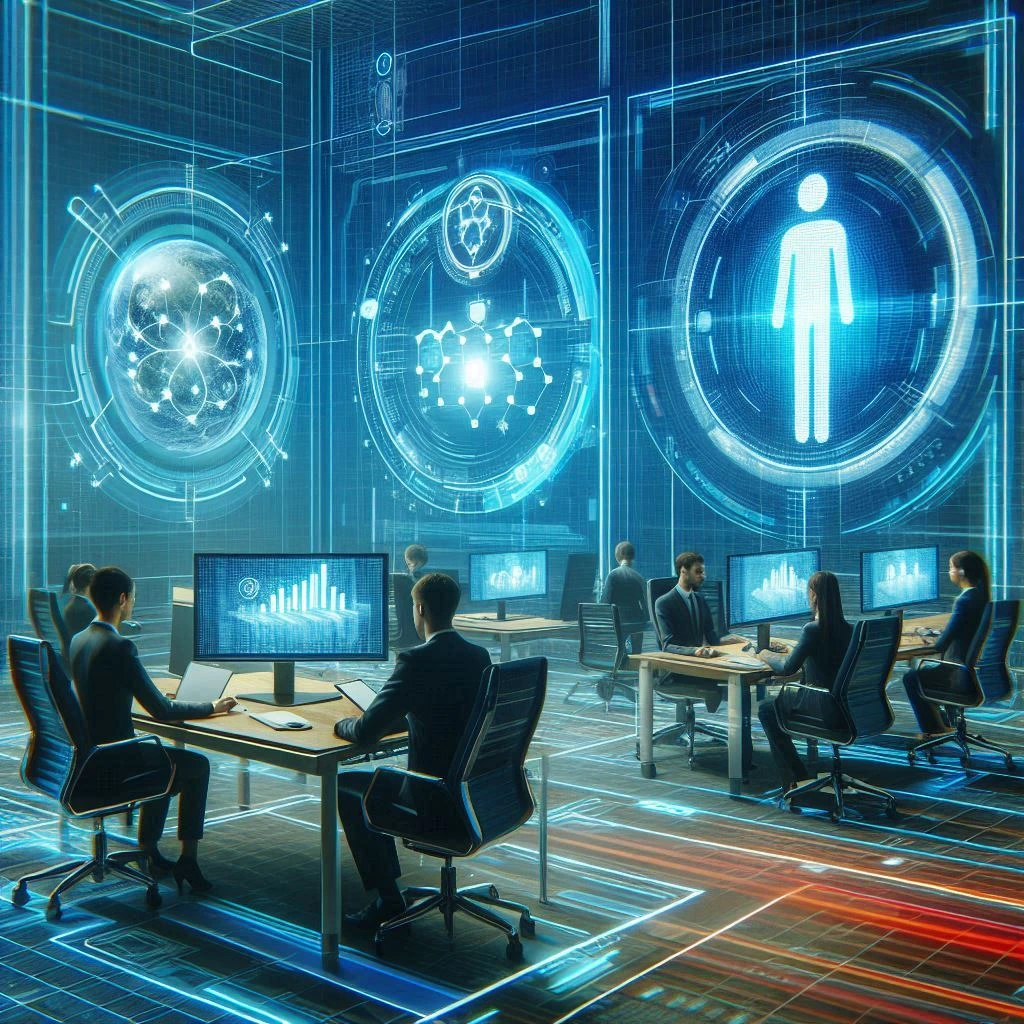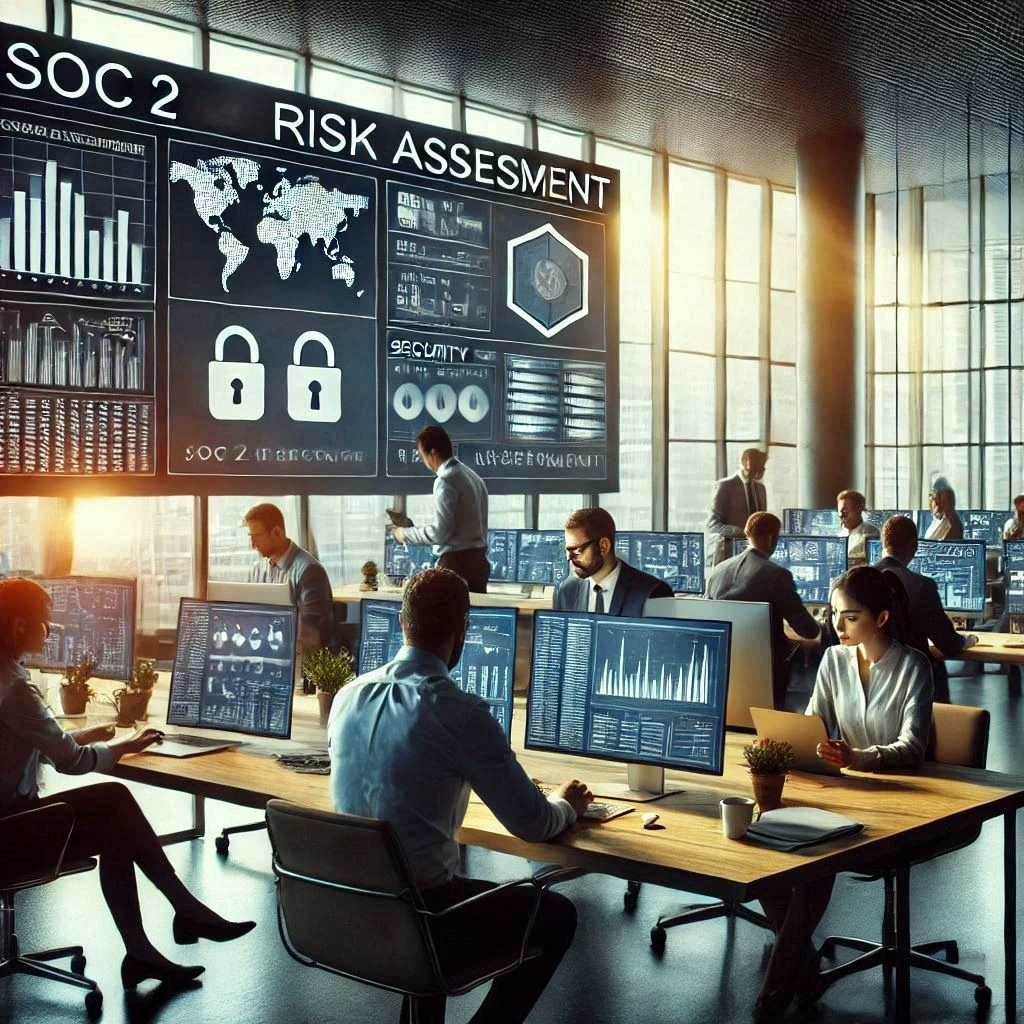Introduction
Internal auditing is a critical function within organizations, serving as a systematic process to evaluate and improve the effectiveness of risk management, control, and governance processes. It plays a vital role in ensuring compliance with laws and regulations, safeguarding assets, and enhancing operational efficiency. As businesses navigate increasingly complex environments, the importance of internal auditing has never been more pronounced, particularly in the context of evolving work dynamics.
In recent years, the shift towards remote work has transformed the landscape of internal auditing. The COVID-19 pandemic accelerated this transition, compelling internal auditors to adapt their methodologies and embrace technology to conduct audits from remote locations. This change has not only redefined traditional auditing practices but has also introduced new challenges and opportunities for audit professionals. The move to remote work has highlighted the need for flexibility, innovation, and a proactive approach to risk management.
As we look to the future, it is essential to explore the trends and predictions that will shape the internal auditing profession in a remote work environment. This discussion will focus on the implications of technology adoption, the emergence of new fraud risks, and the evolving role of internal auditors as strategic partners within their organizations. By understanding these shifts, internal audit professionals and future-focused leaders can better prepare for the challenges and opportunities that lie ahead in the realm of remote auditing.
The Rise of Remote Work in Internal Auditing
The landscape of internal auditing has undergone a significant transformation, particularly in the wake of the COVID-19 pandemic. As organizations adapted to new realities, remote work became not just a necessity but a prevalent practice within internal audit teams. Here are some key points that illustrate this shift:
- Statistics on Remote Work Adoption: A notable trend has emerged where internal audit teams have increasingly embraced remote work. Surveys indicate that a majority of audit professionals have shifted to remote operations, with many reporting that this change is likely to persist in the long term. This shift has been driven by the need for flexibility and efficiency in audit processes, allowing teams to operate effectively regardless of their physical location [11].
- Impact of the COVID-19 Pandemic: The pandemic acted as a catalyst for the rapid adoption of remote work practices across various sectors, including internal auditing. Lockdowns and social distancing measures forced organizations to rethink their operational strategies, leading to a significant increase in the use of digital tools and virtual communication platforms. This transition not only enabled continuity in audit functions but also highlighted the vulnerabilities of traditional auditing practices, prompting a reevaluation of methodologies and technologies used in the field [1][12][14].
- Benefits of Remote Work for Internal Auditors: The shift to remote work has brought several advantages for internal auditors. Key benefits include:
- Flexibility: Remote work allows auditors to manage their schedules more effectively, leading to improved work-life balance and job satisfaction. Many auditors have reported increased productivity due to the ability to work in environments that suit their personal preferences [4][10].
- Access to Global Talent: With remote work, organizations can tap into a broader talent pool, unrestricted by geographical limitations. This access enables internal audit teams to bring in diverse skills and perspectives, enhancing the overall quality of audits and fostering innovation within the field [11].
As internal audit professionals and future-focused leaders navigate this evolving landscape, understanding the implications of remote work will be crucial. The trends observed during the pandemic are likely to shape the future of internal auditing, emphasizing the need for adaptability and a forward-thinking approach to audit practices.
Key Trends in Remote Internal Auditing
As the landscape of internal auditing continues to evolve, the shift towards remote work has introduced several key trends that are reshaping the profession. Internal audit professionals and forward-thinking leaders must adapt to these changes to maintain effectiveness and relevance in their roles. Here are the major trends influencing the future of internal auditing in a remote context:
- Increased Reliance on Technology and Digital Tools: The transition to remote work has necessitated a greater dependence on technology. Auditors are now leveraging advanced digital tools to conduct audits efficiently from various locations. This includes the use of cloud-based platforms for document sharing, virtual meeting software for discussions, and specialized audit software that facilitates remote data access and analysis. The integration of these technologies not only streamlines the audit process but also enhances the ability to conduct audits in real-time, regardless of geographical constraints [1][4].
- Emergence of Data Analytics and Continuous Auditing: Data analytics has become a cornerstone of modern auditing practices, particularly in a remote environment. Auditors are increasingly utilizing data analytics to identify patterns, anomalies, and potential risks within large datasets. This shift towards continuous auditing allows for ongoing monitoring of financial and operational processes, enabling auditors to provide timely insights and recommendations. The ability to analyze data remotely enhances the effectiveness of audits and supports proactive risk management strategies [3][10].
- Shift Towards More Collaborative Tools and Virtual Communication Methods: The remote work model has led to a significant transformation in how audit teams communicate and collaborate. Virtual communication tools, such as video conferencing and instant messaging platforms, have become essential for maintaining team cohesion and facilitating discussions. Additionally, collaborative project management tools enable auditors to work together seamlessly, share updates, and track progress on audit tasks. This shift not only fosters a more inclusive work environment but also enhances the overall efficiency of audit processes [14].
The future of internal auditing in a remote context is characterized by a strong emphasis on technology, data analytics, and collaborative communication. As these trends continue to develop, internal audit professionals must remain agile and adaptable, ensuring they are equipped to meet the challenges and opportunities presented by this evolving landscape.
Challenges of Remote Internal Auditing
As the landscape of internal auditing continues to evolve with the rise of remote work, professionals in the field must navigate a variety of challenges that accompany this shift. Understanding these obstacles is crucial for internal audit teams aiming to maintain effectiveness and integrity in their processes. Here are some key challenges that auditors may face while working remotely:
- Data Security and Confidentiality: One of the foremost concerns in remote internal auditing is ensuring the security of sensitive financial data. The transition to remote work has heightened the risks associated with data breaches and unauthorized access. Auditors are tasked with safeguarding confidential information while utilizing digital tools and platforms, which can expose them to cybersecurity threats. The need for stringent security measures is paramount, as clients expect their most sensitive information to remain protected, even in a virtual environment [2][10][11].
- Maintaining Team Cohesion and Organizational Culture: Remote work can create barriers to effective communication and collaboration among audit teams. The lack of face-to-face interactions may lead to feelings of isolation and hinder the development of a cohesive team culture. Integrating new employees into existing teams becomes more challenging, as the nuances of interpersonal relationships are often lost in virtual settings. Establishing clear expectations and fostering open lines of communication are essential to mitigate these issues and maintain a strong organizational culture [3][7][8].
- Performing Audit Procedures Remotely: Certain audit procedures may be inherently difficult to execute in a remote context. For instance, physical inspections and on-site assessments are often critical components of the audit process that cannot be easily replicated through virtual means. The reliance on digital documentation and remote verification can lead to inefficiencies and potential oversights. Auditors must adapt their methodologies and develop innovative solutions to ensure that all necessary procedures are effectively conducted, despite the limitations of remote work [4][12].
While remote internal auditing presents unique challenges, it also offers opportunities for innovation and growth. By addressing these obstacles head-on, internal audit professionals can better prepare themselves for the future of their field, ensuring that they remain effective and relevant in an increasingly digital world.
Skills and Competencies for the Remote Auditor
As the landscape of internal auditing evolves with the rise of remote work, auditors must adapt to new challenges and opportunities. The following skills and competencies are essential for internal auditors to thrive in a remote environment:
- Digital Literacy and Proficiency in Remote Collaboration Tools: In a remote auditing context, auditors must be adept at using various digital tools and platforms that facilitate collaboration and communication. This includes familiarity with video conferencing software, project management tools, and data analysis applications. A strong command of these technologies not only enhances productivity but also ensures that auditors can effectively engage with clients and team members from different locations [1][2].
- Strong Communication Skills in Virtual Settings: Effective communication is crucial in a remote environment where face-to-face interactions are limited. Internal auditors need to develop skills in active listening, clear verbal communication, and concise written communication. Building trust and rapport with clients and stakeholders is essential, as auditors must ensure that their clients feel comfortable discussing sensitive information and concerns [5]. The ability to convey complex information in an understandable manner is particularly important in virtual settings where misunderstandings can easily occur.
- Adaptability and Continuous Learning: The rapid pace of change in technology and business practices necessitates that internal auditors remain adaptable and committed to continuous learning. This includes staying updated on emerging trends in auditing, regulatory changes, and advancements in technology that impact the auditing process. Auditors should be open to acquiring new skills and knowledge to navigate the evolving landscape effectively [2][4]. This adaptability not only enhances their effectiveness but also positions them as valuable assets to their organizations.
As remote work becomes more prevalent in internal auditing, professionals in the field must cultivate a blend of digital proficiency, communication skills, and a commitment to lifelong learning. These competencies will enable them to meet the demands of a changing environment and contribute to the success of their organizations.
Future Outlook: The Evolution of Internal Auditing
As the landscape of work continues to evolve, particularly with the rise of remote and hybrid models, the internal audit profession is poised for significant transformation. The following key points outline predictions and potential shifts that internal audit professionals and future-focused leaders should consider as they navigate this new terrain.
Continued Integration of Technology in Auditing Practices
The integration of technology into internal auditing is expected to deepen, driven by the need for efficiency and data-driven insights. Auditors are increasingly relying on advanced data analytics and automation tools to enhance their processes. This shift allows for:
- Real-time Data Access: Internal audit teams will leverage technology to access and analyze data in real-time, moving away from traditional onsite audits and face-to-face interactions. This transition not only streamlines the audit process but also enables auditors to respond more swiftly to emerging risks [1][12].
- Enhanced Risk Management: With the use of sophisticated data analytics, auditors can better identify, track, and report risk elements within organizations. This capability is crucial as businesses face an increasingly complex risk landscape, particularly in a remote work environment [12][14].
- Cost-Effectiveness: Remote audits eliminate travel expenses, making the auditing process more cost-effective. The use of digital tools can also increase overall efficiency, allowing audit teams to focus on higher-value tasks [8][2].
Shifts in Organizational Structures and Audit Team Dynamics
The move towards remote work is likely to influence organizational structures and the dynamics within audit teams. Key changes may include:
- Flexible Audit Plans: Internal audit plans will likely become more flexible, with a focus on identifying emerging risks rather than adhering strictly to traditional audit schedules. This adaptability will be essential in a rapidly changing business environment [5][11].
- Collaboration and Communication: As remote work becomes the norm, internal audit leaders will need to master remote communication strategies to build and maintain relationships with audit clients. This shift may require new skills and approaches to ensure effective collaboration across dispersed teams [3][4].
- Talent Acquisition and Retention: The internal audit function will need to adapt its workforce planning practices to address potential skill shortages and increased turnover. Understanding the impacts of these changes on internal control environments will be critical for maintaining effective governance [15].
The Role of Internal Auditors as Strategic Advisors
In a remote work environment, the role of internal auditors is evolving from traditional compliance-focused functions to becoming strategic advisors within organizations. This transformation entails:
- Strategic Alignment: Internal auditors will be expected to align their activities with broader organizational goals, providing insights that drive strategic decision-making. The updated Global Internal Audit Standards emphasize the need for internal audit functions to deliver more strategic value to businesses [10][14].
- Proactive Risk Management: As organizations navigate the complexities of remote work, internal auditors will play a crucial role in identifying and mitigating new risks, including those related to fraud and cybersecurity. Their ability to provide timely and relevant insights will be essential for organizational resilience [9].
- Advisory Capacity: Internal auditors will increasingly be called upon to advise on governance programs and risk management strategies, ensuring that organizations are well-equipped to handle the challenges posed by remote work and other external factors [11][15].
The future of internal auditing is set to be shaped by the ongoing integration of technology, shifts in team dynamics, and the evolving role of auditors as strategic advisors. By embracing these changes, internal audit professionals can position themselves as vital contributors to their organizations’ success in an increasingly remote and complex business landscape.
Best Practices for Remote Internal Auditing
As the landscape of internal auditing evolves with the rise of remote work, it is essential for audit professionals to adapt their strategies to maintain effectiveness and efficiency. Here are some actionable best practices that can enhance remote internal auditing:
- Establish Clear Communication Protocols and Expectations: Effective communication is crucial in a remote environment. Audit teams should create clear guidelines for communication, including preferred tools (e.g., video conferencing, instant messaging) and response times. This ensures that all team members are aligned and can collaborate seamlessly, reducing misunderstandings and enhancing productivity [2][5].
- Utilize Technology Effectively for Collaboration and Data Analysis: Leveraging technology is vital for remote audits. Tools that facilitate cloud-based collaboration allow teams to work together in real-time, regardless of location. Additionally, employing data analytics software can enhance the audit process by providing deeper insights and enabling more efficient data analysis. This not only streamlines workflows but also improves the quality of the audit outcomes [5][7].
- Implement Regular Training and Development Opportunities: Continuous professional development is essential to keep audit skills sharp in a rapidly changing environment. Regular training sessions on compliance standards, cybersecurity practices, and audit processes can help remote employees stay informed and competent. This commitment to ongoing education fosters a culture of learning and adaptability within the audit team [1].
By adopting these best practices, internal audit professionals can navigate the challenges of remote work while positioning themselves for future success. Embracing these strategies not only enhances the effectiveness of audits but also prepares teams for the evolving demands of the profession.
Conclusion
As we navigate the evolving landscape of internal auditing, it is essential to recognize the profound impact that remote work has had on the profession. The shift towards remote internal auditing has brought both significant benefits and notable challenges that professionals must address to thrive in this new environment.
- Benefits of Remote Internal Auditing: Remote auditing has enhanced flexibility, allowing auditors to work from various locations, which can lead to improved work-life balance. Additionally, it has facilitated access to a broader talent pool, enabling organizations to recruit skilled professionals regardless of geographical constraints. The use of technology has also streamlined processes, making audits more efficient and potentially reducing costs associated with travel and logistics.
- Challenges to Consider: Despite these advantages, remote internal auditing presents challenges that cannot be overlooked. Issues such as maintaining effective communication, ensuring data security, and fostering team collaboration can complicate the auditing process. Furthermore, the lack of in-person interactions may hinder relationship-building with stakeholders, which is crucial for understanding organizational dynamics and risks.
In light of these factors, it is imperative for internal audit professionals to embrace change and innovation. The ability to adapt to remote work is not merely a response to current circumstances but a strategic move towards future-proofing the profession. By leveraging technology and developing new methodologies, auditors can enhance their effectiveness and relevance in an increasingly digital world.
As we look ahead, a call to action emerges for internal audit professionals: commit to continuous improvement and forward-thinking. This involves not only embracing remote work but also actively seeking out opportunities for professional development, staying informed about emerging trends, and fostering a culture of innovation within their teams. By doing so, internal auditors can position themselves as valuable partners in their organizations, driving strategic insights and contributing to overall business resilience.
In conclusion, the future of internal auditing is bright for those willing to adapt and innovate. By recognizing the benefits and challenges of remote work, and by committing to ongoing growth and development, internal audit professionals can ensure their relevance and effectiveness in a rapidly changing landscape.
Find out more about Shaun Stoltz https://www.shaunstoltz.com/about/
This post was written by an AI and reviewed/edited by a human.



